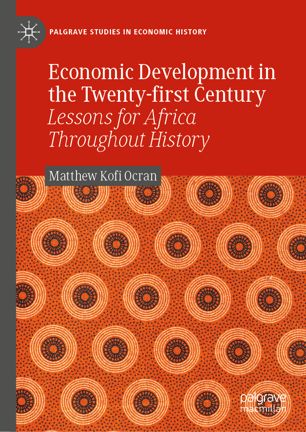

Most ebook files are in PDF format, so you can easily read them using various software such as Foxit Reader or directly on the Google Chrome browser.
Some ebook files are released by publishers in other formats such as .awz, .mobi, .epub, .fb2, etc. You may need to install specific software to read these formats on mobile/PC, such as Calibre.
Please read the tutorial at this link. https://ebooknice.com/page/post?id=faq
We offer FREE conversion to the popular formats you request; however, this may take some time. Therefore, right after payment, please email us, and we will try to provide the service as quickly as possible.
For some exceptional file formats or broken links (if any), please refrain from opening any disputes. Instead, email us first, and we will try to assist within a maximum of 6 hours.
EbookNice Team

Status:
Available4.5
9 reviewsThis book uses lessons from history to help African countries take charge of their own economic development agenda. History is an important part of Africa’s economic development narrative, and Ocran investigates how the development outcomes between Africa and Western Europe became so divergent when in the early medieval period average income levels and economic development in the two regions differed only marginally. The sixteenth century marked a turning point, with the emergence of Western European mercantilism and capitalism and their associated exploitation of other countries. In understanding Africa’s economic development, it is crucial to recognise that Africa has not always been poor.
Examining 400 years of enslavement and colonisation, this book takes us to present day Africa and economic issues affecting the continent. With selected case studies from Hong Kong, Taiwan, and Singapore to South Korea and China, Ocran proposes ways to break out of the economic development quandary Africa currently faces.